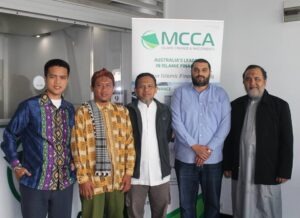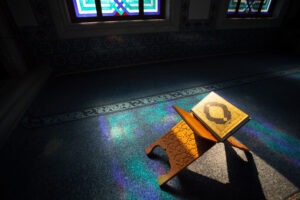The University of Melbourne hosted a City Circle event sponsored by MCCA, entitled “Principles of Islamic Finance”. The speaker was Almir Colan, a consultant lecturer in Islamic Capital Markets in the School of Economics & Finance at La Trobe University. This is a summary of commonly asked questions.
Islamic finance represents financial activity that is consistent with the principles of Islamic law or the Sharī‘ah, which prohibits unethical, immoral, speculative activities including interest (ribā), gambling (maysir), and uncertainty (gharār). An Islamic bank, as defined by the Malaysian Islamic Banking Act, is a banking business whose aims and operations do not involve any element disproved by the religion of Islam. While prohibitions are few and specific in nature, all other financial and contractual arrangements are open to negotiation.
Awareness of Islamic banking and finance is rising and there is a universal demand for a fair and just system that is socially responsible and sustainable. The Prophet (peace be upon him) said, “A time will come when one will not care how one gains one’s money, whether legally or illegally.” (Bukhari) So, as Muslims, we do not want to come under this category of people who do not care about such issues. There are scholars who go further and say that some aspects of Islamic finance are obligatory on us individually to learn if we are engaged in business and financial dealings. As for the rest of society, Islamic finance has the potential to provide a stable and secure ethical alternative, especially in these uncertain times.

There are millions of people who have lost their homes due to the 2008 global financial crisis. It is estimated that this number will increase next year. Billions were lost in the flash crash of 2010 while the whole of Europe is currently facing an unprecedented debt crisis. It is not strange then to see protesters at “Occupy Wall Street” holding signs saying “Let’s Bank The Muslim way”. This reflects the sentiment people feel towards the greedy and inhumane system that currently operates.
Thus, we all have to examine where our understanding of finance and money comes from. For instance, I asked from audience members to complete the sentence “Time is…” Almost unanimously people answered “Money”. Does anyone know why we think that “Time is money”? Is this an Islamically correct attitude towards time or money? Of course not. In fact, this is a pillar of the interest based system which is something that is prohibited by Sharī‘ah. In fact this is what the main difference between Islamic banking and conventional banking is.
To understand this wisdom one has to go back to the source of all the principles. The Qur’anic verse “…Allah has permitted trade and has forbidden riba (interest)” (Qur’an 2:275) is the reason why Islamic finance encourages entrepreneurship and trade, and prohibits interest in all business dealings. Islamic banks deal in goods and documents, not in money. Money is used only as a medium of exchange for purchasing assets and then engaging in sale, lease or investment. On the other hand, conventional banks deal with money and documents and not in goods. Money is treated as a commodity which is bought and sold. This is contrary to the nature of money as being a medium of exchange, unit of account and store of value.
One may look at the origins and history of how money was established and developed to represent the value of an asset (usually a valuable metal). Therefore, the transaction of money for money is one that contradicts the representative nature of money because it asserts that money is an asset, rather than a representative of an asset.
This is an important principle for Islamic financial institutions like MCCA in terms of explaining how they make money. As we know, the Prophet (peace be upon him) was asked “What form of gain is the best?” The Prophet (peace be upon him) replied, “A man’s work with his hands and every legitimate sale’”(Ahmad).
This is well demonstrated in a hadith narrated by Urwa when the Prophet (peace be upon him) gave him one dinar in order to buy a sheep for him. Urwa bought two sheep for him with the money. Then he sold one of the sheep for one dinar, and brought one dinar and a sheep to the Prophet. On that, the Prophet invoked Allah to bless him in his dealings. (Bukhari) If Urwa had borrowed the first dinar with the condition that he would return the dinar plus a sheep that would be pure interest (ribā). By engaging in business and trade, money is converted into something useful which in turn generates legitimate profit for the financier.
Similarly, when MCCA customers engage in Lease Arrangement (Ijārah) contracts they are not exchanging money for money. In fact there would be no way for MCCA to profit from that arrangement, it would be pure interest. However, in a Lease Arrangement (Ijārah) we have an exchange of money which represents rental payment for a usufruct or right to use property.
Now, there are those who will say that all Islamic finance is doing is playing with words without really making a difference because both Islamic and conventional banks make the same return except that one calls it interest and the other calls it profit from trade? This is not a substantiated argument and it is not a new story.
The verse mentioned previously references those who say “Trade is [just] like interest.” However, Allah has permitted trade and has forbidden interest (ribā). This shows that although there may be similarities between interest and profit, there are fundamental concepts and principles that Islam seeks to protect and safeguard. One must look beyond the single transaction they are involved in and how much they are going to be paying, taking into account features such as risk sharing and the absence of speculation which are non-existent in conventional finance models.
On the other hand, entrepreneurial activities encourage mutual cooperation, generosity and a spirit of partnership which connect the capital-owner with real economic activities that may actually contribute to the welfare of society through commerce, manufacturing, construction etc. “O you who believe! Do not devour your property among yourselves unjustly except that it be by trade amongst you, by mutual consent…” (Qur’an 4:29)
Close to almost one billion Muslims in the Asia Pacific Region is creating conditions that can facilitate and replicate global success of Islamic finance within Australian context. The Board of Taxation recently issued a discussion paper as a way to introduce parity of tax treatment and level the playing field for Islamic finance products. The key reason is that The Middle East region represents a major source of offshore liquidity which, for a capital intensive Australian economy, is of the great interest.
As various banks increase direct and indirect dealings with Islamic finance institutions we see signs of progress. Currently, there are some wholesale and retail Islamic finance products, with Super (pension) and equity funds slowly making inroads. For instance, MCCA, established in 1989 as a small community cooperative, is now on the road to become the first Australian Islamic bank as it heads towards $1 Billion in Islamic financing by 2015.
Furthermore, in the last few years we have also seen Kuwait Finance House move to Melbourne, Westpac’s commodity-trading facility (believed to be the first Islamic financing tool for institutions in Australia), ANZ’s investment in AmBank (now at almost 24 per cent), NAB’s involvement in Sukuk, as well as intentions of HSBC Amanah to compete down under.
In light of this, it is not surprising to see ambitious statements by government officials that Islamic financing is a crucial plank in the government’s strategy to make Australia a financial hub in the Asia Pacific region.





